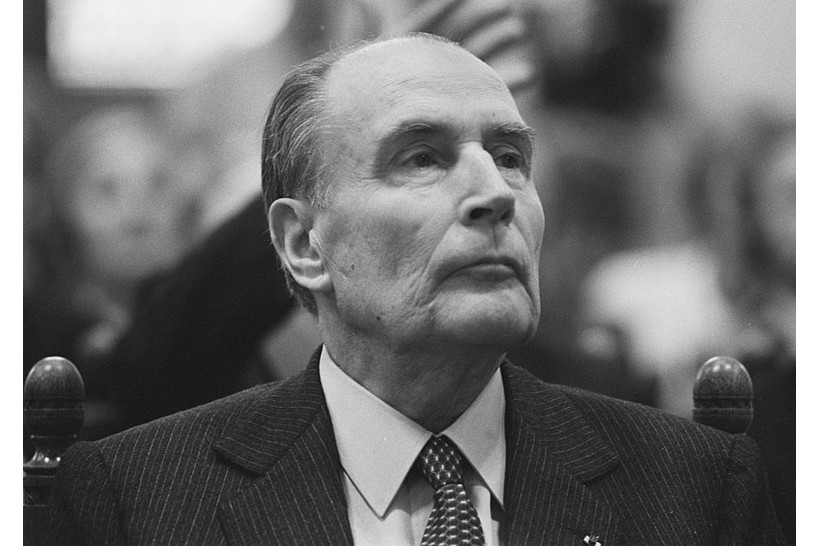Neither Léon Blum, François Mitterrand nor Lionel Jospin were extremist revolutionaries. On the contrary, they were among the leaders of French and European social democracy. However… they kept their word when it came to fighting for time to live… In the 21st century, reducing work time is no feat: it is a right!
By Politika
During the 1981 presidential campaign, François Mitterrand, the socialist candidate of the Union de la Gauche which brought together the PSF, the PCF and other left-wing organisations, made a speech in which he referred to the history of work time:
“Thus, is summed up the whole battle that has lasted since the 19th century… the battle for time to live. What was life for a proletarian in the middle of the 19th century? It was, from the age of 7 or 8, work on behalf of others. It was work until death and without rest. There was no retirement at the end of life… There was no break, no days off, no paid holidays during the year. There were no weekends! There was no day of rest. Maybe, sometimes, on Sunday morning, to go to mass… Retirement, you have to understand that when retirement was set at 65… the average age of a worker was 55. And that’s how things were done… by wrenching from the bosses the concessions that he refused!”
1936 – The Popular Front approves the generalisation of paid holidays!
On 3 May 1936, the Popular Front came to power in France. Appointed President of the Council, Léon Blum knew he had to act quickly, very quickly, to implement the Popular Front’s programme and calm the social movements. Among the hot topics of the moment were the 40-hour week and industrial agreements. And what about paid holidays? If the latter are not part of the promises of the Popular Front, their demand is gaining greater and greater force.
Forced to take it into account, the bill introducing paid holidays was urgently drafted during the night of 8-9 June 1936. On 9 June, Léon Blum presented the text to the Council and two days later the law was voted on by the Chamber of Deputies. Its content? With this law, paid holidays became compulsory for all persons with an Employment Contract (regardless of age, sex, nationality). For those who have more than one year of seniority, the annual rest was fixed at 15 days per year, of which 12 weekdays (of work).
From 1936 onwards, no less than 600,000 French people went on holiday thanks to reduced-price train tickets, and nearly two million a year more. …. But the real movement began with three million (tickets sold) in 1948, more than four million in 1949, more than five million in 1951… Until then reserved for the bourgeoisie, tourism opened up to the working classes.
1956 – The third week of paid holidays
On 15 September 1955, the Renault factories and the trade unions signed an agreement. In addition to raising wages, the agreement inaugurated the third week of paid holidays for Renault workers.
A few months later, the socialist Guy Mollet, elected President of the Council by a majority of the Republican Front, put the generalisation of the third week of paid holidays on the agenda, to give “the workers the annual rest they needed”. On 28 February 1956, the National Assembly votes unanimously for the law.
1969 – May ’68 delays the fourth week of paid holidays.
Once again, it was Renault which broke new ground by introducing a fourth week of paid holidays for its employees in 1962, without notifying the government!
The National Council of French Employers signed an agreement in 1965 to extend this benefit to the country’s large companies. A law was passed on 2 May 1968 to generalise the measure. Its entry into force was delayed until 17 May 1969.
Léon Gingembre, general delegate of the Confederation of Small and Medium-Sized Enterprises, denounced a measure that “constitutes a handicap to their competitiveness vis-à-vis their foreign adversaries”. With the fourth week of paid holidays, France is the second most generous country in the world, just behind… Cuba!
1982 – A fifth week of paid holidays and “holiday vouchers” to promote tourism
With François Mitterrand’s victory in the 1981 presidential election, the government took a series of social measures. On 25 February 1982, the 39-hour work week and the fifth week of paid holidays were introduced in France, i.e., 30 working days. Not only that, the government instituted 8 paid holidays per year. The government wants to boost the tourism industry, which is booming in France.
2000 – The 35-hour week
A topic of confrontation between the right and the left, the 35-hour working week was approved by the government of the socialist Lionel Jospin, with the laws of 1998 and 2000.
The 35-hour week, this “French exception”, is still the legal reference week.
And France… has not collapsed!
Now, in the middle of 2023, it is the companies that are pushing for a 4-day working week!






